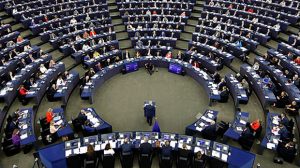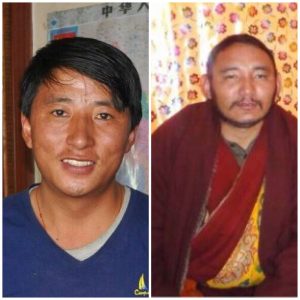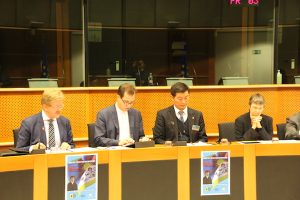 All eyes were on Europe last week, and this time it wasn’t because of Brexit. The European Parliament passed a resolution calling on China to respect its constitutional provisions to protect the human rights of Tibetans and other Chinese citizens. The non-legislative resolution was passed during the Human Rights and Democracy debate in the Plenary session in Strasbourg, France on January 18. Days later, in Brussels, Belgium, Sikyong Lobsang Sangay, President of the Tibetan Government-in-Exile, echoed these concerns when he testified before the Subcommittee on Human Rights of the European Parliament. Giving evidence about the discrimination experienced by Tibetans at the hands of the Chinese, Dr Sangay explained that hard line Chinese policies and laws were undermining human rights provisioned in China’s constitution.
All eyes were on Europe last week, and this time it wasn’t because of Brexit. The European Parliament passed a resolution calling on China to respect its constitutional provisions to protect the human rights of Tibetans and other Chinese citizens. The non-legislative resolution was passed during the Human Rights and Democracy debate in the Plenary session in Strasbourg, France on January 18. Days later, in Brussels, Belgium, Sikyong Lobsang Sangay, President of the Tibetan Government-in-Exile, echoed these concerns when he testified before the Subcommittee on Human Rights of the European Parliament. Giving evidence about the discrimination experienced by Tibetans at the hands of the Chinese, Dr Sangay explained that hard line Chinese policies and laws were undermining human rights provisioned in China’s constitution.

Tashi Wangchuk (L) and Choekyi (R)
The European Parliament, which represents the EU’s 28 member states, calls in its resolution for a “strong, clear and unified voice” in its approach to China, and requests that China engage in dialogue with His Holiness the Dalai Lama. It draws attention to the plight of language activist Tashi Wangchuk and Tibetan monk Choekyi, both of whom are currently serving prison sentences in China. Wangchuk was arrested in 2016 and charged with “inciting separatism” following his appearance in a New York Times video where he called for Tibetan language rights. The EU resolution expresses concern for his “limited right to counsel, the lack of evidence against him and the irregularities in the criminal investigation”, and demands his immediate and unconditional release.
Similarly, the resolution calls for Choekyi, who hails from the Phurbu monastery in Sichuan, to be freed from jail. He was sentenced to a four-year prison term in 2015 for celebrating His Holiness the Dalai Lama’s birthday. It has been reported that his imprisonment has caused his health to deteriorate.
In addition, the European Parliament condemned the anti-Buddhist sentiment of China’s “patriotic education” campaigns, acknowledging that the conditions for practicing Tibetan Buddhists have worsened since the widespread Tibetan protests in March 2008. The resolution recognises that, despite China’s commitment to various international human rights treaties, much progress is still to be desired, and voices regret about the limited impact of yearly EU-China dialogues.

CTA President speaking at the EU parliament
Appearing before the Subcommittee on Human Rights, Dr Sangay echoed these sentiments, highlighting the social, cultural and economic abuse suffered by Tibetans living in Tibet under Chinese rule. In addition to name checking Tashi Wangchuk, he explained that Buddhist learning institutes, such as Larung Gar and Yarchen Gar, had been demolished by the Chinese, and their inhabitants forcefully evicted under the guise of “development”. Mindful of the 70th anniversary of the Universal Declaration of Human Rights, Dr Sangay said that the Tibetan situation had worsened, noting that 151 Tibetans have self-immolated since 2009 in protest against their treatment and His Holiness the Dalai Lama’s exile.




 Print
Print Email
Email